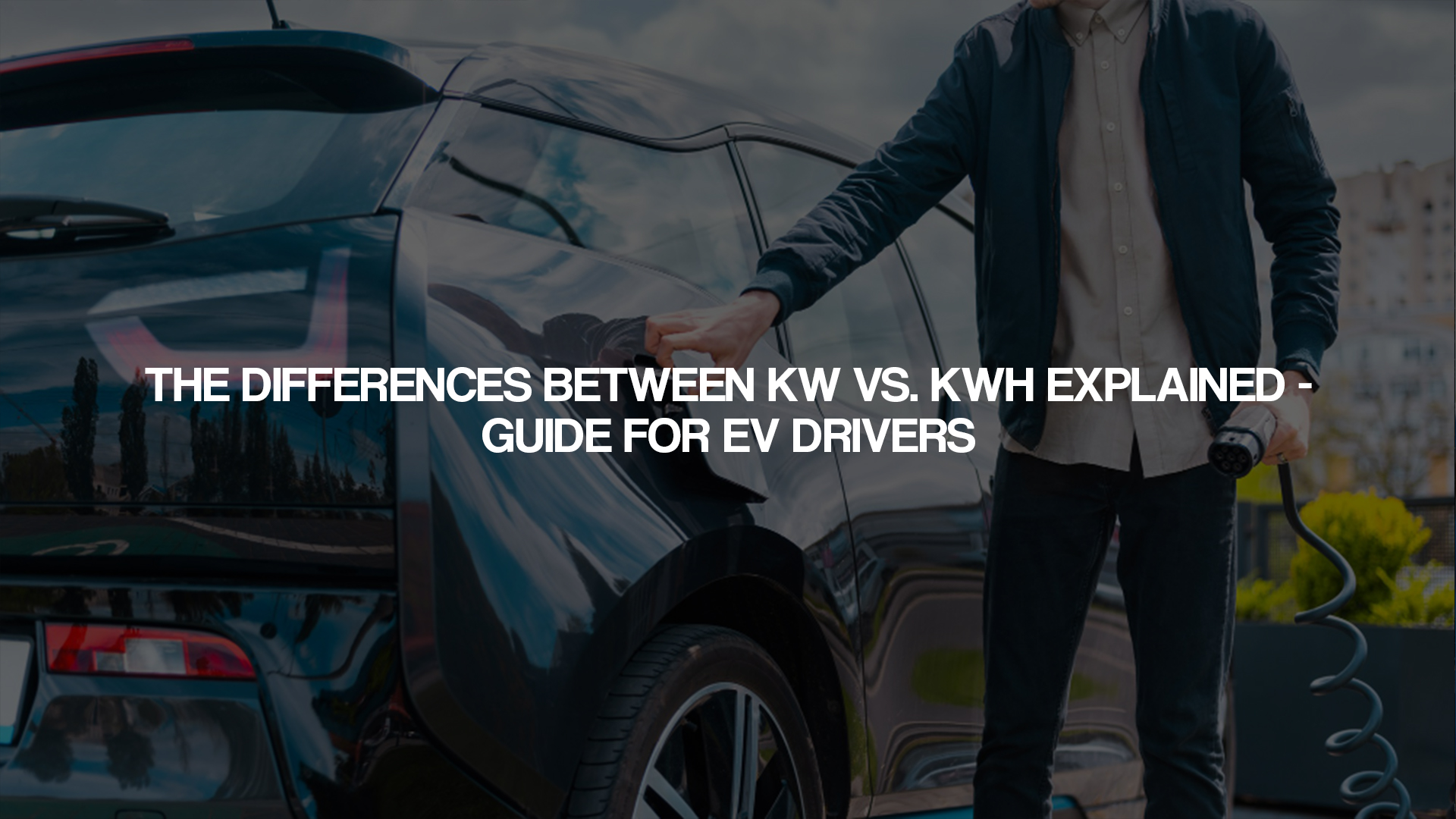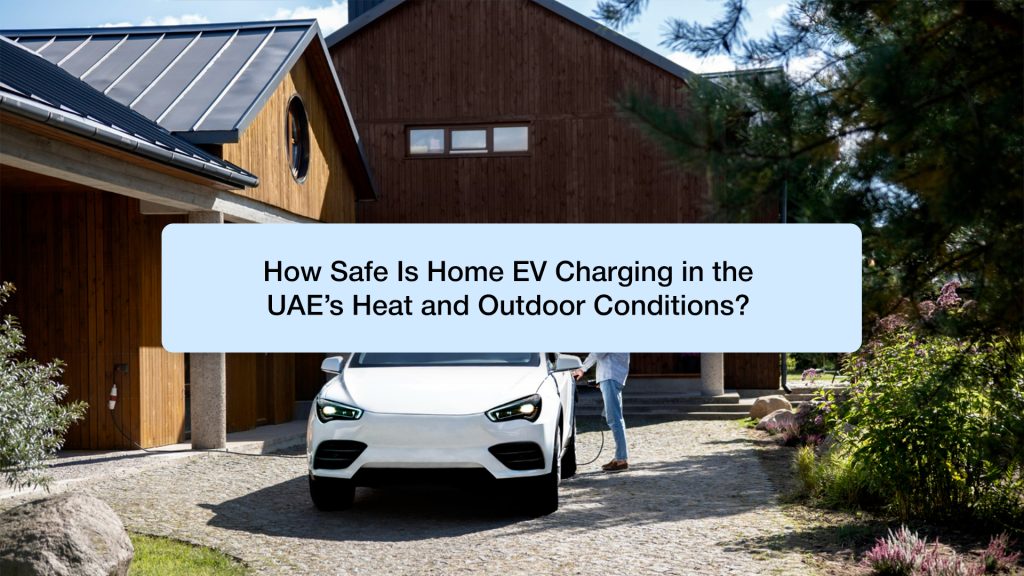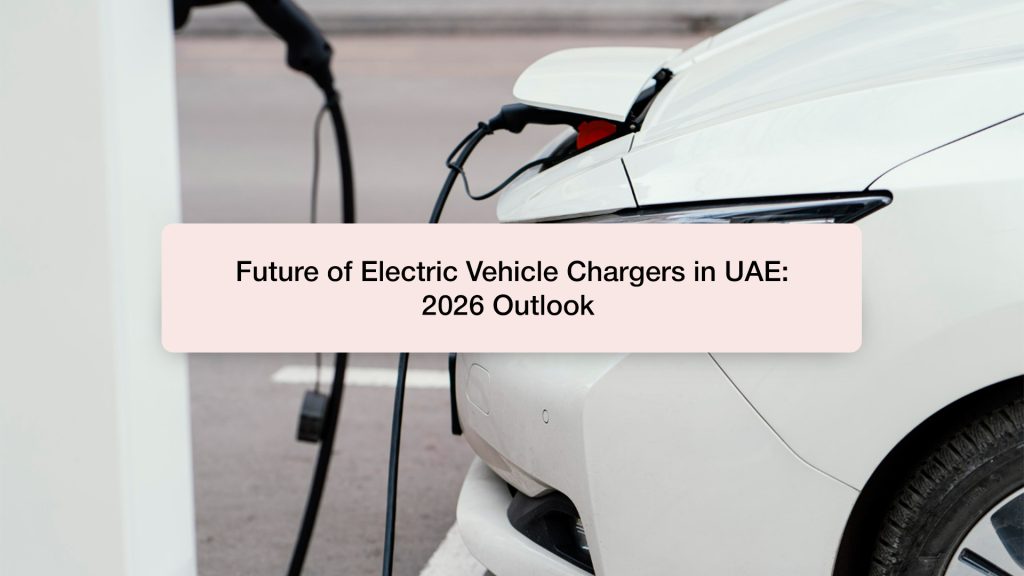Have you ever wondered what the difference is between kW vs. kWh when looking at EV Charger specs in the UAE? Understanding this distinction is crucial for EV drivers, especially when choosing between AC and DC EV Chargers or exploring the Best EV Charging Solutions in UAE. With the growing number of electric vehicles on UAE roads and government initiatives like Dubai’s Green Mobility Strategy and ADQCC’s focus on regulated energy systems, choosing the right EV Charging Solutions isn’t just a matter of convenience but also cost-efficiency and sustainability.
A clear understanding of how kW vs. kWh impacts EV charging can help users avoid overpaying, charge more effectively, and make informed decisions about chargers. Whether you’re using Wall Mount EV Chargers, Pedestal Mount EV Chargers, or Ultra Fast EV Chargers, this guide will simplify these technical terms and empower you to make smarter EV charging decisions.
What is kW (Kilowatt)?
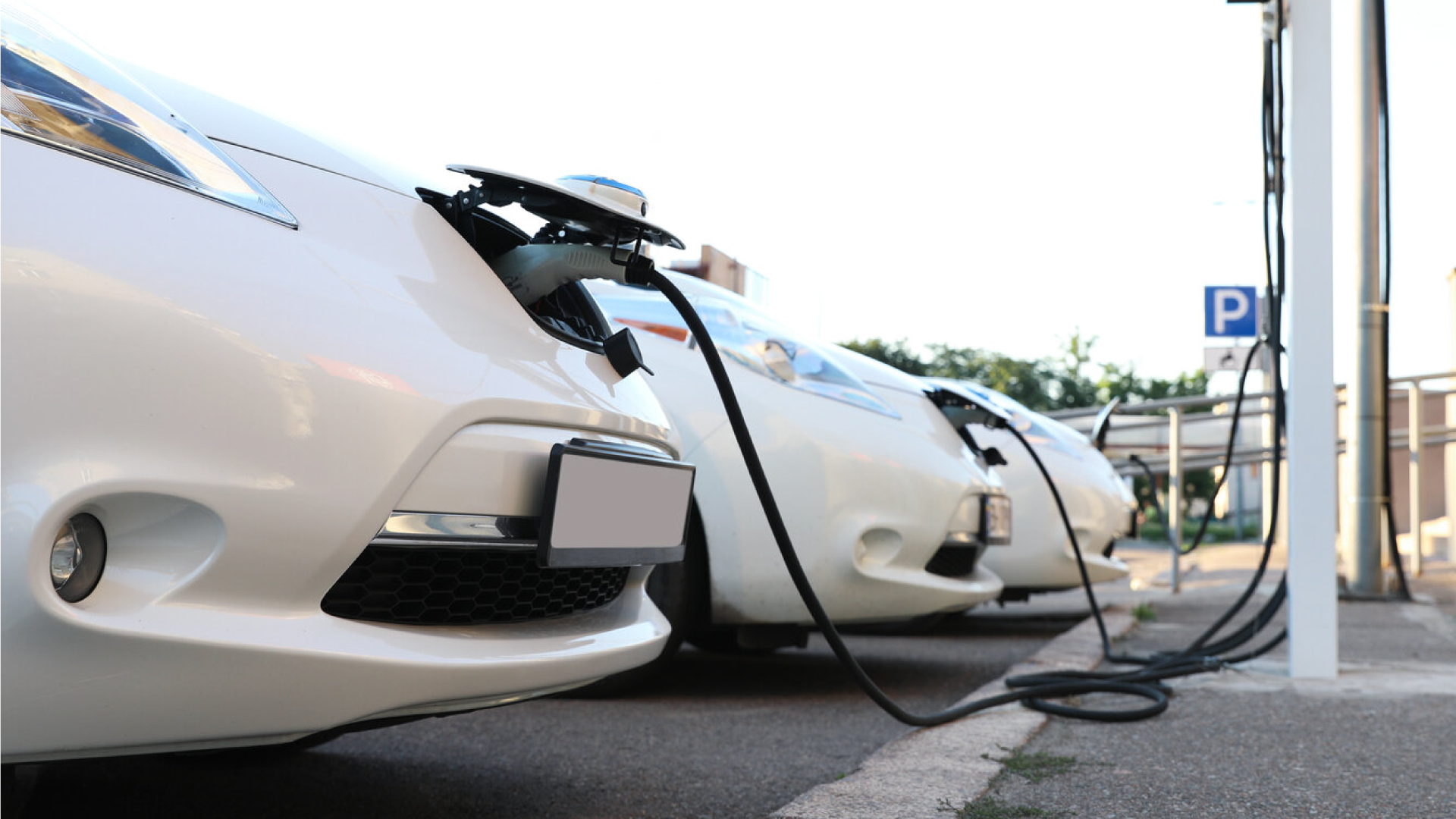
A kilowatt (kW) is a unit of power that measures the rate at which energy is transferred or used. In the context of electric vehicle (EV) charging, kilowatt refers to how quickly electricity can be delivered from an EV charger to the vehicle’s battery. The higher the kilowatt rating, the faster the energy transfer.
Understanding kilowatt ratings is essential when choosing EV Charging Solutions, as it directly affects charging speed and efficiency. Whether it’s Smart EV Charging Solutions for homes or high-capacity systems for businesses, the kilowatt rating helps users determine the most suitable option for their needs.
Imagine you’re filling a bucket with water:
- The kW rating is like the size of the pipe—the bigger the pipe, the faster the water flows.
- So, a higher kW charger means faster charging speed.
1 kilowatt (kW) = 1,000 watts (W)
In simple terms, power (kW) tells you the rate at which electrical energy is being consumed or produced at any given moment.
Formula for Power (kW) = Voltage (V)×Current (A) / 1000
Where:
- Voltage (V) = the electric potential
- Current (A) = the flow of electric charge
- Division by 1000 converts watts to kilowatts
Example: Home EV Charger
Suppose you have a home EV charger that operates at:
Voltage = 230V
Current = 32A
Power (kW) = 230 x 32 / 1000 = 7.36kW
This means your EV charger delivers 7.36 kW of power, or in simpler terms:
Your EV is charging at a speed of 7.36 kilowatts per hour.
What is kWh (Kilowatt-hour)?
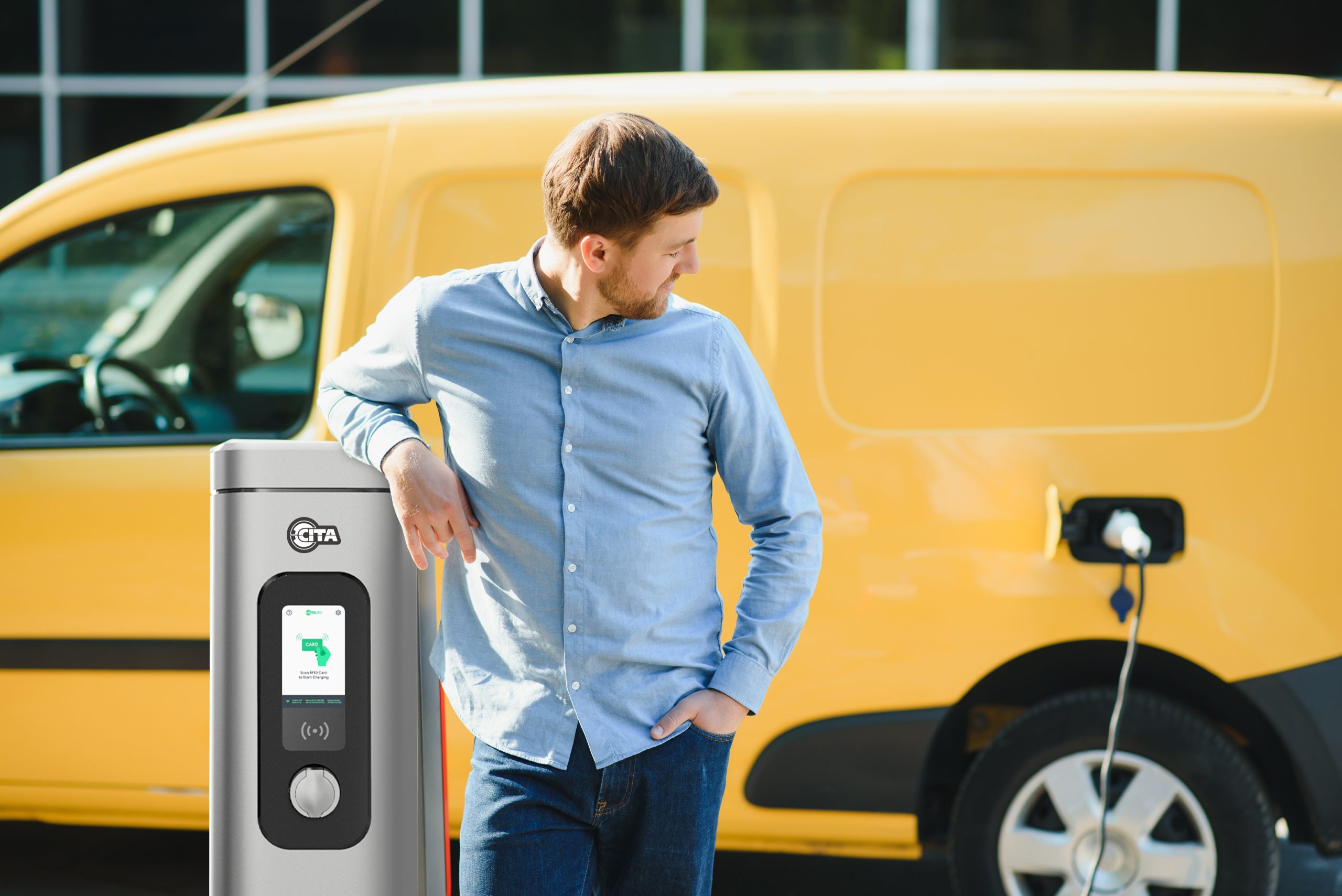
Kilowatt-hour (kWh) is a unit of energy used to measure how much electricity an electric vehicle (EV) consumes or stores over time. It represents the amount of energy used when a device with a power rating of one kilowatt (kW) runs for one hour. For EVs, kWh is essential in determining battery capacity, driving range, and charging requirements. For example, a 60 kWh battery can theoretically provide 60 kW of power for one hour.
1 kWh = Using 1 kilowatt of power for 1 hour
Think of it as the quantity of electricity consumed or charged, not the speed.
Formula for Energy (kWh) = Power (kW) × Time (hours)
Where:
- Power (kW) is the charging/discharging rate
- Time is the number of hours that energy flows
Example: Charging an EV
Let’s say you’re charging your EV using a 7 kW home charger for 4 hours:
Energy = 7 kW × 4 hours = 28 kWh
Your EV has received 28 kilowatt-hours of energy, which is now stored in the battery.
kW vs. kWh: The Core Difference
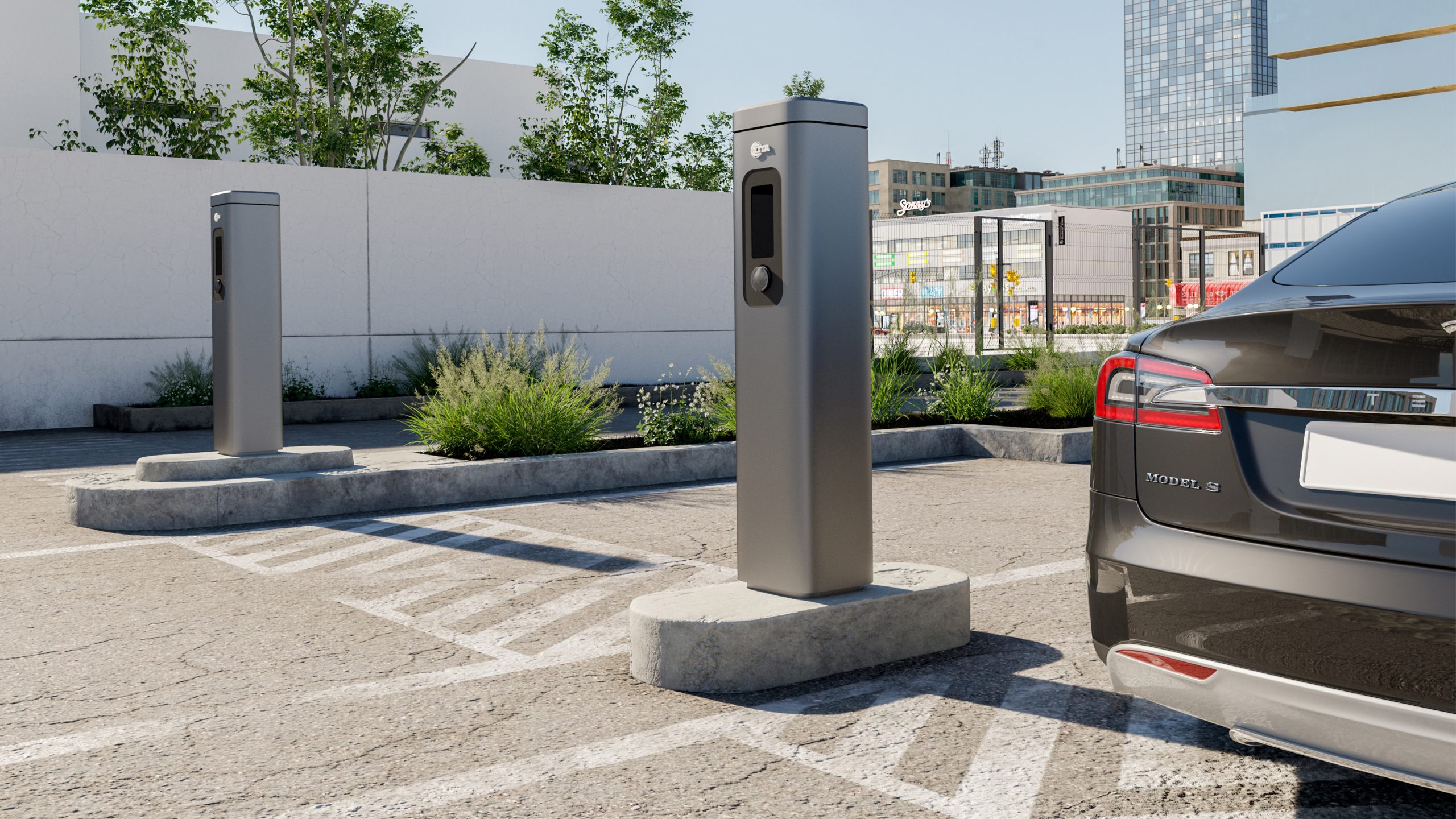
kW (kilowatt) and kWh (kilowatt-hour) are commonly used units in the world of electricity, but they serve different purposes. kW refers to power—the rate at which energy is being used or generated at a specific moment, such as how fast your EV is charging. On the other hand, kWh measures energy—the total amount of electricity consumed or stored over a period of time, like the full capacity of an EV battery.
Understanding the difference helps in managing energy use, estimating charging times, and calculating electricity costs more accurately.
| Aspect | kW (Kilowatt) | kWh (Kilowatt-hour) |
| What it Measures | Power (rate of energy transfer) | Energy (total amount of power used over time) |
| EV Charger Role | Indicates how fast a charger can deliver electricity | Shows how much electricity has been delivered to the vehicle |
| Use in Charging | Determines charging speed (e.g., 7 kW, 22 kW, 60 kW, 150 kW) | Reflects the total energy transferred during a charging session |
| Example | A 22 kW charger can charge faster than a 7 kW charger | Charging a 60 kWh battery means 60 units of energy were transferred |
| Displayed On | Charger specifications and labels | EV dashboard, charging app, or charger display post-session |
| Billing & Cost | Not directly used for billing | Charging cost is typically based on kWh consumed |
| Importance | Affects how quickly your EV charges | Helps you estimate driving range and cost per charge |
Decoding EV Charging: Why kW vs. kWh Shapes Your EV Experience
When stepping into the world of electric vehicles, understanding kW vs. kWh is more than just technical knowledge—it directly affects your EV’s charging speed, range, and overall efficiency. Whether you’re using a home EV Charger or a public DC fast charger, these two energy metrics are critical. Recognizing the role of kilowatts (power) and kilowatt-hours (energy) allows drivers to choose the best Smart EV Charging Solutions available and make informed decisions.
Here’s how this knowledge impacts your EV experience:
1) Faster Charging Starts with Higher kW
The kW rating of an EV Charger determines how quickly energy is delivered to your car. A 22kW EV charger can reduce charging time by more than 50% compared to a 7kW unit. This is especially helpful for busy EV owners and commercial fleet operators who depend on fast turnaround times for convenience and productivity.
2) kWh Determines Driving Range and Energy Storage
kWh (kilowatt-hour) reflects your EV’s total battery capacity and directly affects your driving range. For instance, a 60 kWh battery can typically offer 350 to 450 kilometres per full charge. Understanding this helps drivers plan their trips better, estimate recharging needs, and compare energy efficiency across different EV models.
3) Cost Calculations Are Based on kWh Consumption
Charging costs are calculated using kWh, not kW. Knowing how many kilowatt-hours your EV consumes allows you to forecast electricity bills and select the most economical EV Charging Solutions. It also enables better energy budgeting and helps you choose plans from your utility provider that best match your usage.
4) Match Charger Power to Battery Capacity for Efficiency
Pairing your EV’s battery with the correct kW-rated charger maximizes charging efficiency. For example, charging a 60kWh battery with a 50kW DC fast charger typically takes just over an hour. Over or underpowering can result in wasted time or underutilized capacity, leading to inefficient energy use and unnecessary delays.
5) Smart EV Charging Solutions Track Both Metrics
Modern Smart EV Charging Solutions provided by top AC EV charger manufacturers and DC EV charger manufacturers offer real-time tracking of both kW and kWh. This empowers users to monitor charging speed, energy usage, and total cost instantly, ensuring full transparency and smarter, data-driven charging decisions for both home and commercial EV users.
Why Every EV Driver Must Understand kW vs. kWh

When it comes to electric vehicles, many new EV owners are confused by the terms kW and kWh, but knowing the difference is crucial. kW (kilowatt) is a unit of power that shows how fast an EV charger can deliver energy to your vehicle.
In contrast, kWh (kilowatt-hour) is a unit of energy that reflects how much power your EV consumes over time. Think of kW as the speed and kWh as the distance travelled.
Understanding this difference helps drivers make smarter decisions when selecting an EV Charger, estimating charging times, or comparing EV Charging Solutions. Whether you’re looking at home EV charging or public charging options, knowing how kilowatts and kilowatt-hours work together allows you to manage your time and energy costs more efficiently.
Empower Your EV Charging Choices Today: Choose Wisely, Charge Smartly
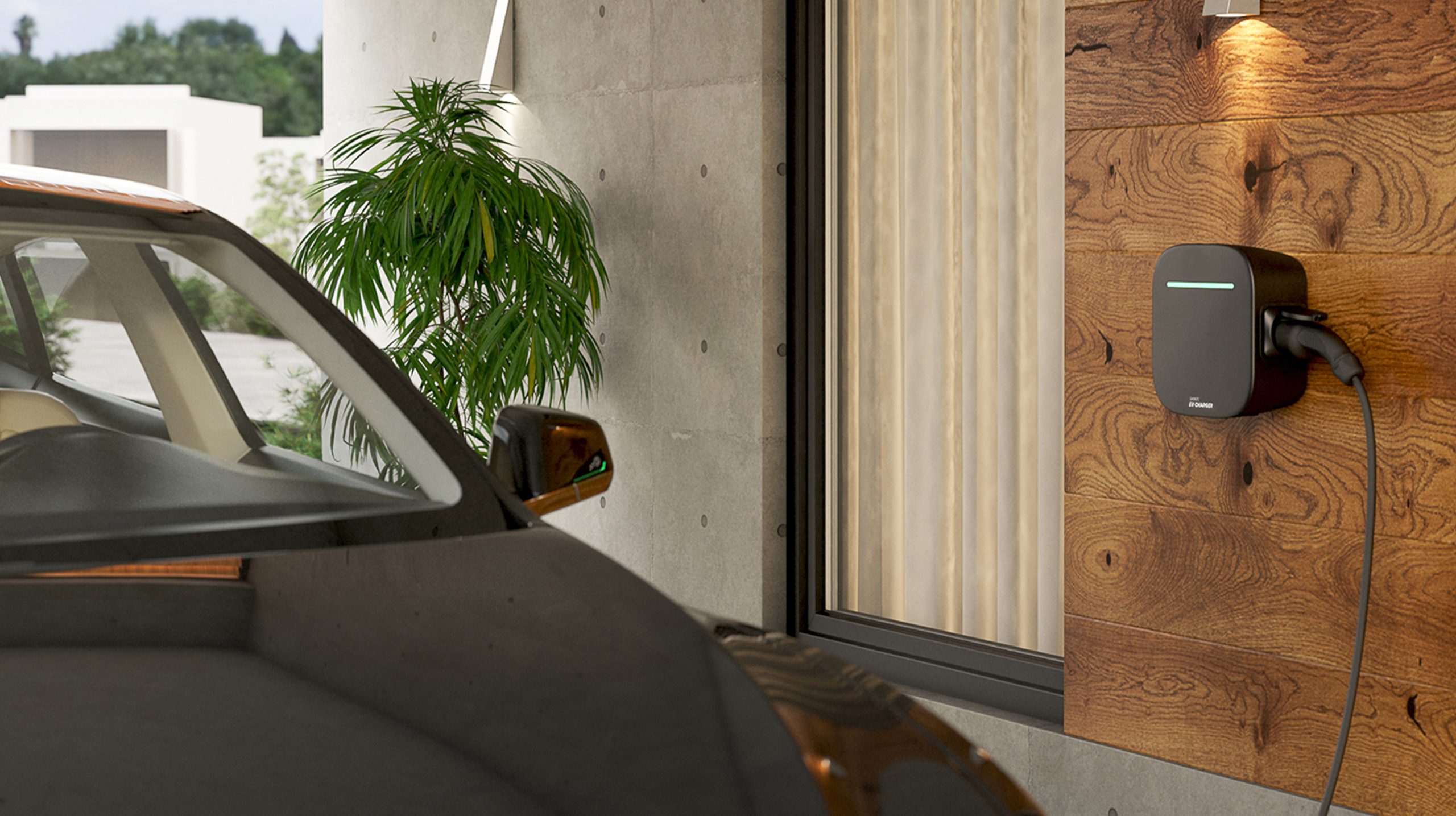
Understanding the difference between kW and kWh helps you take control of your EV charging habits. From calculating energy use and costs to selecting the best chargers for your lifestyle, this knowledge empowers UAE EV drivers to make smarter, sustainable choices.
When you choose products from trusted brands like CITA EV Chargers, you’re opting for innovation, safety, and efficiency. Whether you’re looking for AC EV charger manufacturers, DC EV charger manufacturers, or the Best EV charger service provider, always align your selection with your charging goals.
Need expert help choosing the right EV Charger?
Connect with the Top EV charger supplier in the UAE today and power your drive smartly!



